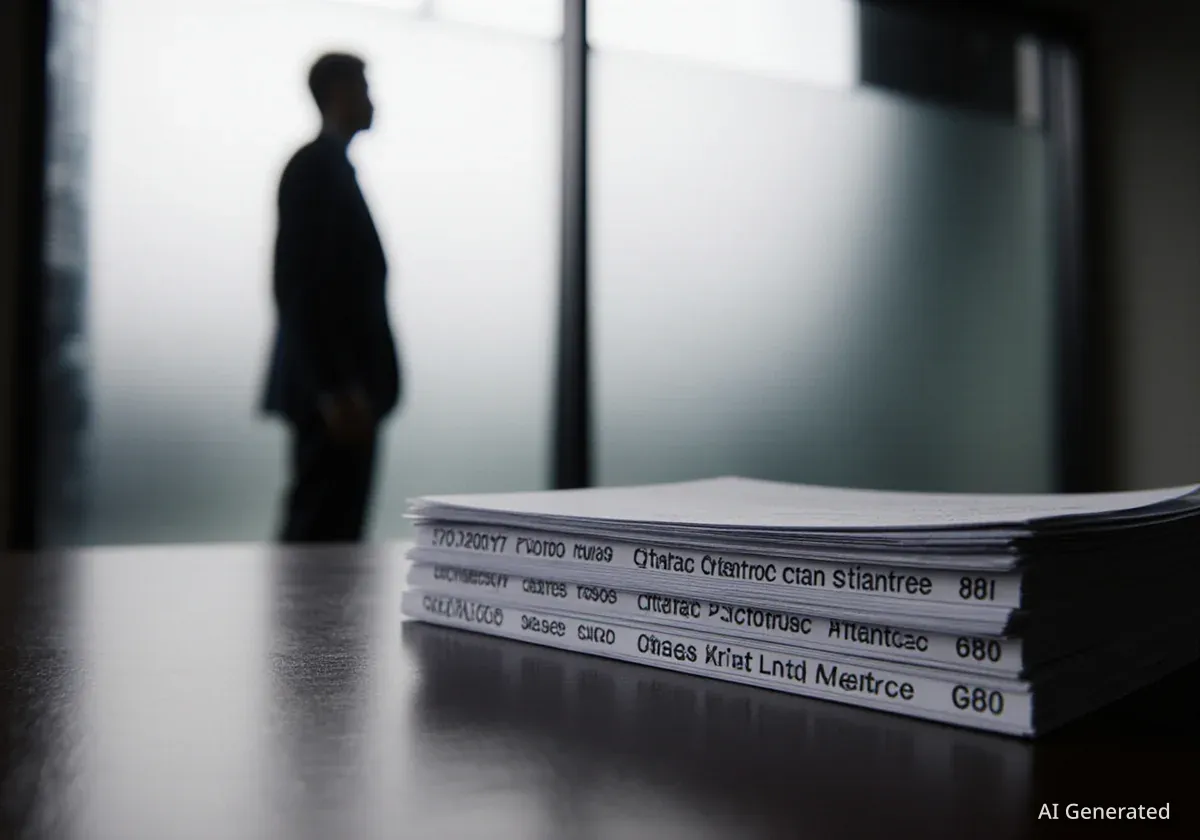A Missouri woman has been sentenced to more than four years in federal prison for her role in an elaborate scheme to fraudulently sell Elvis Presley's iconic Graceland estate in Memphis, Tennessee. The plot involved the use of a fictitious company and forged documents to create the appearance of a legitimate foreclosure sale.
Key Takeaways
- A Missouri woman was sentenced on Tuesday to over four years in federal prison for attempting to fraudulently sell Graceland.
- The scheme involved creating a fake company and forging documents to claim a non-existent multi-million dollar loan against the property.
- The attempted foreclosure sale was halted after Elvis Presley's estate filed a lawsuit and obtained a court order.
- The case highlights a growing trend of complex identity theft and real estate fraud targeting high-value properties.
Details of the Sentencing
The sentence was handed down in a federal court in Memphis. The woman, a resident of Missouri, was found guilty of orchestrating a plan to seize and sell the historic home, which now operates as a museum and is a major tourist attraction. Federal prosecutors detailed how she attempted to deceive financial institutions and the public.
Her conviction concludes a federal investigation that unraveled a complex web of deceit aimed at one of America's most famous landmarks. The prison term reflects the severity of the crime, which involved not only financial fraud but also the attempted theft of a significant cultural asset.
The Significance of Graceland
Graceland was the home of Elvis Presley from 1957 until his death in 1977. Opened to the public as a museum in 1982, it has become one of the most visited homes in the United States, second only to the White House. The estate is listed on the National Register of Historic Places and was designated a National Historic Landmark in 2006. It is owned by the estate of Elvis's daughter, Lisa Marie Presley, who passed away in 2023.
Anatomy of the Fraudulent Scheme
The core of the fraudulent operation was the creation of a fake company. This entity was used to file legal documents claiming that Lisa Marie Presley had secured a multi-million dollar loan using Graceland as collateral and had subsequently defaulted on the repayment.
Forged Documents and False Claims
According to court documents, the woman and her associates forged loan agreements and other financial papers to substantiate their false claim. These documents were meticulously crafted to appear authentic, including signatures and official-looking seals. The perpetrators then initiated foreclosure proceedings based on this fabricated debt.
A foreclosure sale was scheduled, and notices were published, creating a public perception that the sale was legitimate. The goal was to sell the property to an unsuspecting buyer and abscond with the proceeds, which would have amounted to millions of dollars.
"This case involved a brazen attempt to defraud the estate of a cultural icon for personal enrichment," stated a representative from the U.S. Attorney's office. "The sentencing sends a clear message that such criminal conduct will be met with serious consequences."
The scheme began to unravel when representatives for Elvis Presley Enterprises Inc., the entity that manages Graceland, became aware of the scheduled sale. They immediately recognized the claims as fraudulent, as no such loan had ever been taken out by Lisa Marie Presley or the estate.
Legal Action Halts Illicit Sale
Upon discovering the foreclosure notice, the Presley estate took swift legal action. They filed a lawsuit in Shelby County Chancery Court seeking a temporary restraining order to block the sale. The lawsuit presented evidence that the documents supporting the foreclosure claim were forgeries.
Quick Facts on the Case
- Defendant: A woman from Missouri.
- Target: Elvis Presley's Graceland estate.
- Method: Forged loan documents and a fake company.
- Outcome: Prison sentence of more than four years.
A Memphis judge granted the restraining order, effectively halting the sale just before it was scheduled to occur. The judge noted the high likelihood that the estate would succeed in proving the documents were fraudulent. This civil action paved the way for a federal criminal investigation into the individuals behind the scheme.
Federal investigators were able to trace the fake company and the forged documents back to the Missouri woman. The investigation revealed a deliberate and calculated effort to exploit legal processes for criminal gain. The use of a fake company was a key element, designed to obscure the identities of those involved and create a layer of false legitimacy.
Broader Implications of Real Estate Fraud
This high-profile case sheds light on the sophisticated nature of modern real estate fraud. Criminals are increasingly using identity theft and forged electronic documents to target properties, particularly those with high value or complex ownership structures, such as estates.
Experts in financial crime note that such schemes often rely on exploiting gaps in public record systems and the sheer volume of real estate transactions, which can make it difficult to spot a single fraudulent filing immediately. The Graceland case was unusual only in the fame of the property involved; the methods used are becoming more common.
Protecting Property Assets
The incident serves as a cautionary tale for property owners. Legal and financial experts recommend several steps to protect against similar fraud attempts:
- Monitor Public Records: Regularly check county records for any unexpected filings or liens against your property.
- Secure Personal Information: Protect sensitive data that could be used for identity theft, which is often the first step in property fraud.
- Consider Title Lock Services: Some services offer monitoring and alerts for any changes to a property's title.
- Act Quickly: If you suspect fraud, contact law enforcement and legal counsel immediately, as the Presley estate did.
The successful intervention by the Presley estate demonstrates the importance of vigilant oversight of assets. Their quick response was crucial in preventing the irreversible sale of the property and in bringing the perpetrator to justice. The federal prison sentence now serves as a significant deterrent to others who might consider similar criminal ventures.





